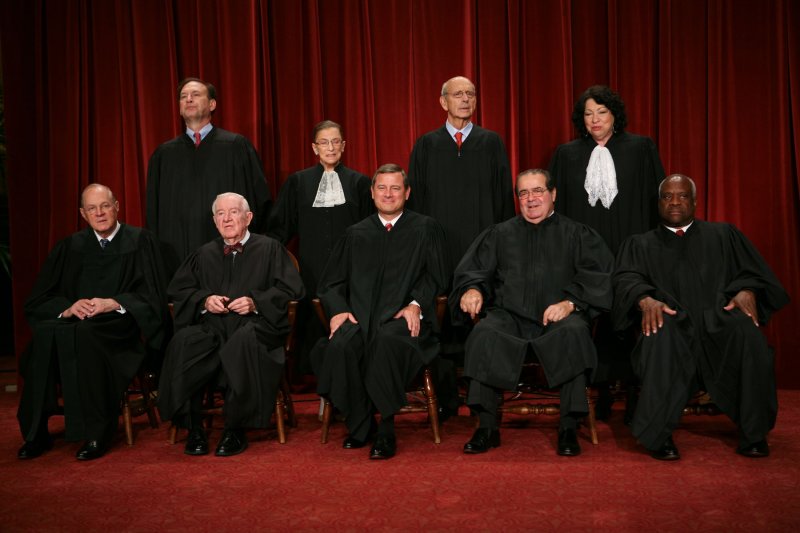1 of 2 | The Supreme Court Justices of the United States posed for their official "family" group photo Sept. 29, 2009, at the Supreme Court in Washington. The justices are John G. Roberts (Chief Justice), John Paul Stevens, Antonin Scalia, Anthony Kennedy, Clarence Thomas, Ruth Bader Ginsburg, Stephen Breyer, Samuel Alito, Sonia Sotomayor. UPI/Gary Fabiano/Pool |
License Photo
WASHINGTON, April 3 (UPI) -- U.S. Supreme Court Justice John Paul Stevens, though widely regarded as a liberal justice, says his judicial philosophy is actually conservative.
Stevens, who told The New Yorker in an interview last month he will retire from the Supreme Court within the next three years, was regarded as a moderate when former President Gerald Ford nominated him to the court in 1975. Although many of his decisions have cheered U.S. liberals, he told The New York Times Friday he considers his judicial philosophy to be conservative.
"What really for me marks a conservative judge is one who doesn't decide more than he has to in order to do his own job," Stevens said. "Our job is to decide cases and resolve controversies. It's not to write broad rules that may answer society's questions at large."
In an interview with the Times, Stevens, 89, did not announce a retirement date but he did say he needs to "fish or cut bait, just for my own personal peace of mind and also in fairness to the process."
"The president and the Senate need plenty of time to fill a vacancy," he said.
In an interview with The Washington Post, Stevens said he wants to make his decision on retirement "in a way that's best for the court."
The White House expects a nomination battle in the Senate possibly as early as this summer, The Times said.
Stevens' retirement will give President Barack Obama his second appointment to the court. The first was that of Sonia Sotomayor, who succeeded Justice David Souter after his retirement.















